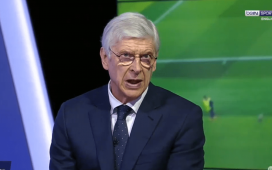FILE PHOTO: A view through a fence, decorated with the Olympic rings, shows a building of the federal state budgetary institution “Federal scientific centre of physical culture and sports”, which houses a laboratory accredited by the World Anti-Doping Agency (WADA), in Moscow, Russia on November 11, 2015. REUTERS/Sergei Karpukhin
MOSCOW (Reuters) – The World Anti-Doping Agency (WADA) said on Wednesday it had provisionally suspended the status of Moscow’s anti-doping laboratory that had allowed it to analyse athlete biological passports (ABP) as Russia’s doping scandal continues.
The move comes little more than a month after WADA barred Russians from competing under their country’s flag at major international events for four years as punishment for having provided it with doctored laboratory data.
Russia’s appeal against the sanctions, which also bar it from hosting or bidding for major events, will be heard by the Court of Arbitration for Sport (CAS).
WADA said in a statement that the Moscow laboratory would not be allowed to carry out “any work related to the analysis of blood samples in connection with the Athlete Biological Passport (ABP) program” pending disciplinary proceedings.
WADA said its Laboratory Expert Group had deemed Moscow’s deletion and alteration of laboratory data to be “a serious violation.”
The laboratory’s full accreditation was revoked in 2015 after a WADA-commissioned report found evidence of institutionalised doping in Russian athletics. The country’s athletics federation and anti-doping agency RUSADA were also suspended in the wake of the scandal.
In 2016 WADA authorized the laboratory to analyse athlete biological passports (ABP) to ensure the programme’s continuity. However, its right to carry out other anti-doping activities remains revoked.
ABP is designed to monitor different biological components that reveal the effects of doping over time.
Russia has denied the existence of state-sponsored doping in the country but has at times acknowledged shortcomings in its enforcement of anti-doping regulations.
Reporting by Gabrielle Tétrault-Farber; Editing by Christian Radnedge













